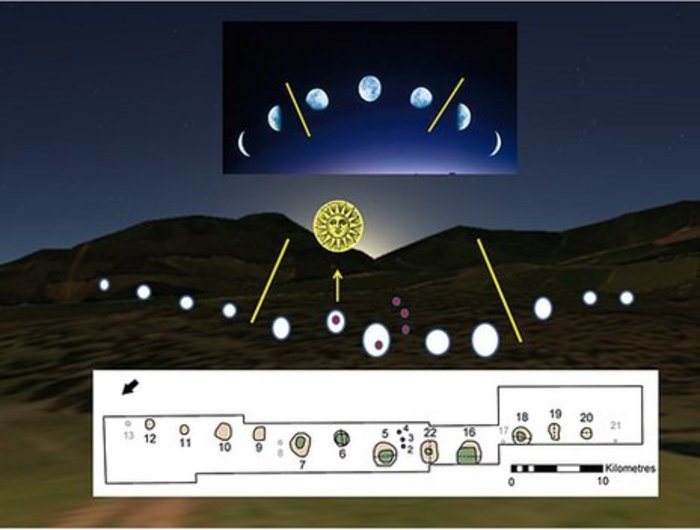ABERDEEN, Scotland, July 15 (UPI) -- Archaeologists say they've discovered what they believe is the world's oldest lunar calendar in a field in Scotland.
Excavations of a field in Aberdeenshire uncovered a series of 12 pits that appear to mimic the phases of the moon and mark out lunar months, the BBC reported.















